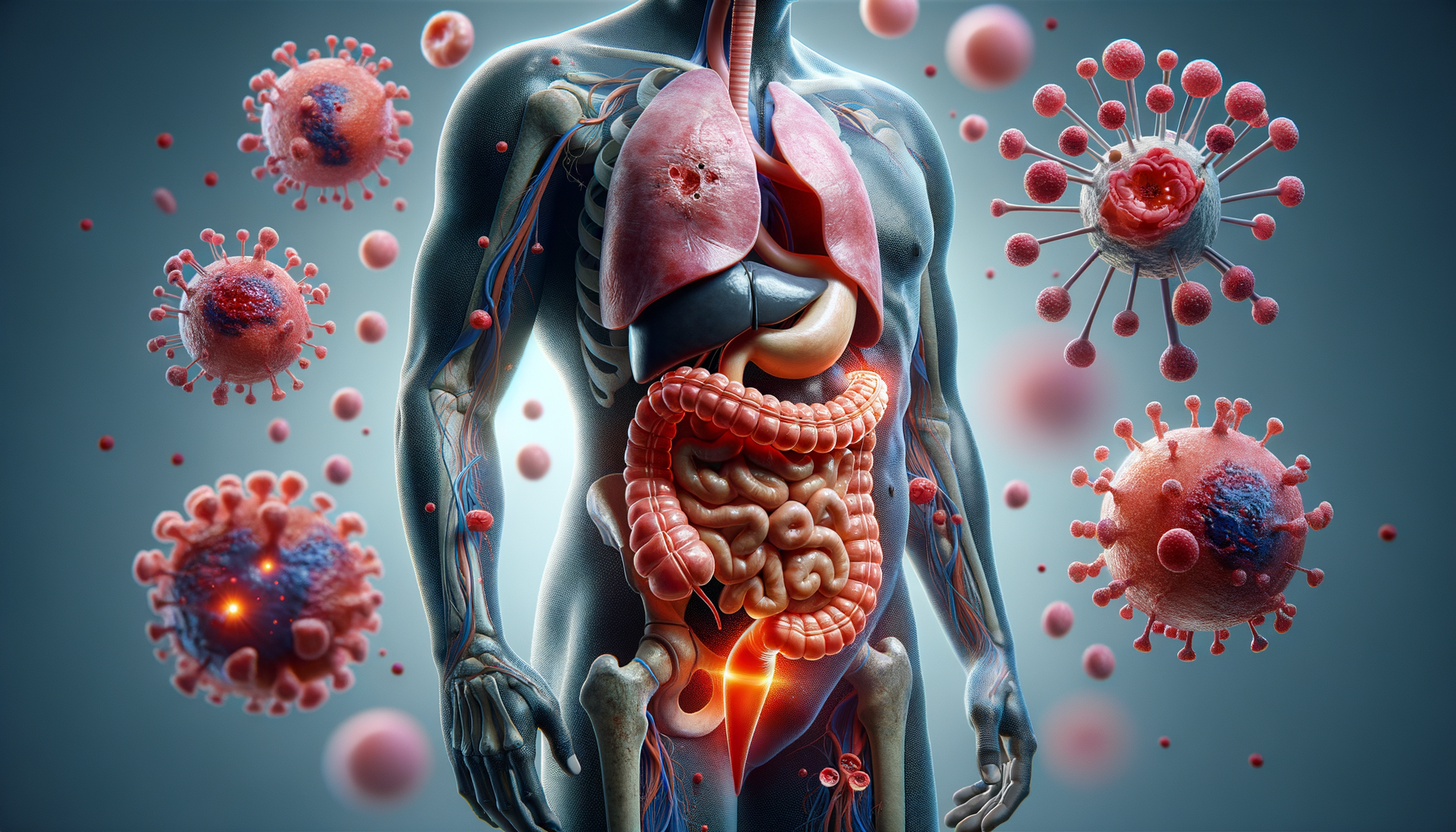Understanding Colon Cancer: An Overview
Colon cancer, also known as colorectal cancer, is one of the most prevalent cancers globally. This type of cancer begins in the colon or rectum, parts of the large intestine, and can develop from benign polyps over time. These polyps can transform into cancerous cells, which then have the potential to invade other tissues.
Understanding the nature of colon cancer is crucial for early detection and treatment. The disease progresses in stages, starting from localized growths to more advanced stages where it spreads to other parts of the body. This progression is typically categorized into four stages, with Stage I being the earliest and Stage IV representing widespread metastasis.
Several risk factors are associated with colon cancer, including age, family history, certain genetic mutations, lifestyle factors such as diet and exercise, and chronic inflammatory conditions like ulcerative colitis or Crohn’s disease. Awareness of these factors can help individuals take preventive measures and seek timely medical advice.
Early Signs and Symptoms
Recognizing the early signs of colon cancer can significantly impact outcomes. Unfortunately, early-stage colon cancer often presents with subtle or no symptoms, making regular screenings essential, especially for those at higher risk.
Common early symptoms include changes in bowel habits, such as diarrhea or constipation, rectal bleeding or blood in the stool, abdominal discomfort, and unexplained weight loss. These symptoms can be mistaken for other gastrointestinal issues, which is why professional evaluation is critical.
It’s important to note that not everyone with colon cancer will experience these symptoms, and having one or more of these symptoms does not necessarily mean you have colon cancer. However, if these symptoms persist, it is advisable to consult a healthcare provider for further investigation.
How Colon Cancer Spreads
Understanding how colon cancer spreads is vital for comprehending its severity and the importance of early detection. Cancer spreads through a process known as metastasis, where cancer cells break away from the original tumor and travel through the bloodstream or lymphatic system to form new tumors in other parts of the body.
In colon cancer, the liver is the most common site for metastasis, followed by the lungs and peritoneum. This spread is often facilitated by the cancer cells’ ability to invade nearby tissues and enter the circulatory system.
Once colon cancer has spread, treatment becomes more complex, often requiring a combination of surgery, chemotherapy, and targeted therapies. Early detection remains the most effective strategy in preventing the spread of colon cancer and improving survival rates.
Diagnosis and Screening Methods
Screening for colon cancer is a powerful tool in reducing mortality rates. Several screening methods are available, each with its advantages and limitations. The most common screening tests include colonoscopy, fecal occult blood tests (FOBT), and sigmoidoscopy.
Colonoscopy is considered the gold standard as it allows for direct visualization of the entire colon and the removal of polyps during the procedure. FOBT is a non-invasive test that detects hidden blood in the stool, which can be an early sign of cancer. Sigmoidoscopy examines only the lower part of the colon and rectum.
Regular screening is recommended for individuals over the age of 50 or earlier for those with a family history or other risk factors. Adhering to screening guidelines can lead to early detection, when treatment is most effective.
Treatment Options and Advances
Treatment for colon cancer depends on the stage at diagnosis and the patient’s overall health. Common treatments include surgery, chemotherapy, radiation therapy, and targeted therapies.
Surgery is often the first line of treatment, especially in early-stage cancers, to remove the tumor and surrounding tissue. Chemotherapy and radiation therapy may be used to eliminate any remaining cancer cells or to shrink tumors before surgery.
Recent advances in targeted therapies have revolutionized the treatment of colon cancer. These therapies focus on specific molecules involved in cancer growth and spread, offering a more personalized and effective approach with fewer side effects compared to traditional chemotherapy.
Ongoing research and clinical trials continue to explore innovative treatments, aiming to improve survival rates and quality of life for colon cancer patients. Staying informed about these developments can empower patients and caregivers in making informed treatment decisions.




Leave a Reply